With a little know-how, you can make your trip to France exceptional
“Whenever you go on a trip to visit foreign lands or distant places, remember that they are all someone’s home and backyard.”
Vera Nazarian
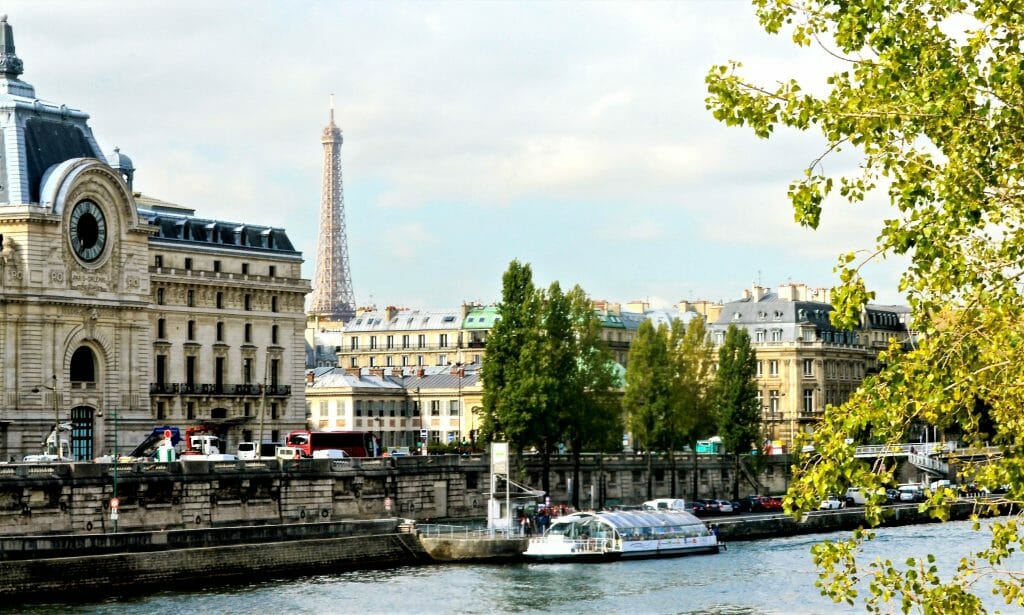
Knowing your audience is essential to ensure positive and productive interactions. This occurs daily with our families, friends, and co-workers, and when interacting with the public. Different cultures have different etiquette and expectations. When we travel, we come from the perspective that we are a guest in the country, the place they call home. It is our job as that guest to be a good one. We always take the time to learn at least the basic phrases to show our effort. More importantly, we take the time to learn the culture to show respect for their way of life. That does mean you have to agree with it but you need to be accepting of their traditions and culture. This is especially important when visiting France. As a result, I wrote this post on the 9 Things to Know about French Culture Before You Visit.
French heritage
First, let me start with some background and why I feel I am in a solid position to provide the 9 Things to Know about French Culture Before You Visit. I am a first-generation American born to French immigrants. French was my first language, and all of my extended family still lives in France. I have dual citizenship in the US and France. We traveled frequently to visit family all over France during my childhood. As an adult, I have continued to visit France every few years.
When I visit France, the locals at first assume I am an American who speaks good French. My French is pretty sketchy now, and everything else about me says American. Once, a shopkeeper in Paris said translated, “I find your French baffling; your grammar is atrocious, but your accent is excellent.” It was the perfect description! To add to my experience beyond French being my native language, I have a behavioral science background that draws me to keenly observe the interactions around me.
A reputation a bit misunderstood
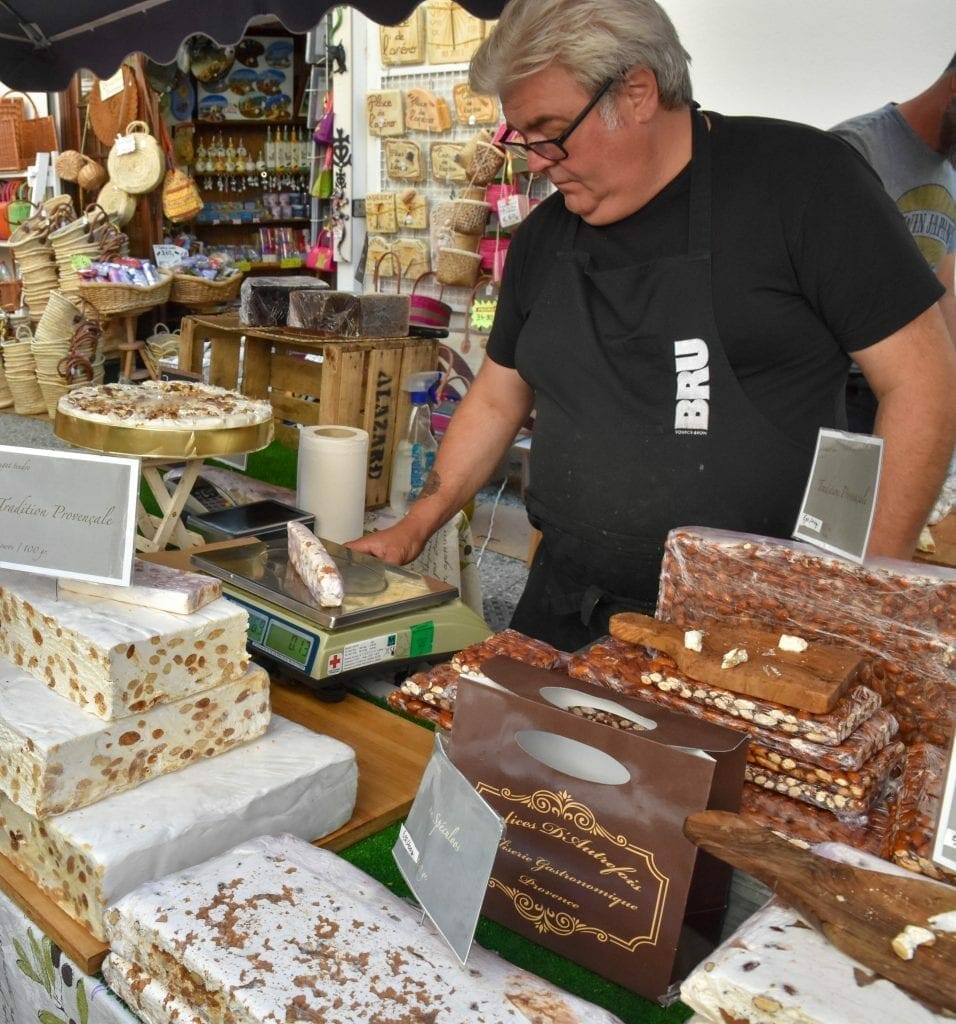
The French have a reputation for being rude, intolerant, and hating Americans. That is so far from the truth, in my opinion. I have observed interactions that reflect that, but in most cases, with a small bit of knowledge, that can be rare.
French people are some of the kindest and most gracious people I have encountered in my travels. That is not my native bias speaking but from close observations outside of my interactions. I have taken many American friends of all ages and watched closely and have taken the time to watch fellow American travelers interact with the locals.
When I travel to accompany friends and family for the first time, I always share my top 9 Things to know about French culture before you visit (#1 below is the most valuable one, I believe). My friends and family have rarely had negative experiences anywhere in France after that. My kids have traveled with me and alone and have never had issues. One of their observations after a three-week trip all over France was the only rude people they came across were Americans on the TGV who were shoving past people.
Cultural Norm

The French follow established manners, rules, and cultural customs or, simply said, etiquette. These are very important to the French, and by acting on these, you will find a much warmer and kinder welcome. The French are proud people; being aware and showing respect goes a long way. You are a guest in their country, be a good one. Being cognizant of the 9 Things to know about French culture before you visit and how best to interact with the French people, you will likely find your experience remarkable.
As a disclaimer, I am not saying there are no rude French people, but in my travels around the world, they are some of the most polite travelers I have encountered. All cultures have people who lack manners, grace, and appropriate behavior. I have seen what foreigners call the “ugly Americans”, but they are not the norm.
Tip #1 Manners
“Manners are about imagination, ultimately. They are about imagining being the other person.”
Lynne Truss
This is an important one!!! Let me set up the scenario. Imagine a guest walking in your home’s front door without acknowledging you, without a word or greeting. They then walk around your home and make themselves comfortable while ignoring you. Would that irritate you? That is the crux of why many people receive what they call rude treatment or a cold shoulder when they enter a shop. The shopkeeper was first treated rudely per their customs, and their response was in kind. Right or wrong, that is why.
The French are a bit more formal and polite. As you walk into a boulangerie, patisserie, small boutique, pharmacy, or shop, you should always acknowledge the shopkeeper with eye contact and a spoken Bonjour Madame (women) or Bonjour Monsieur (men). Do this immediately before entering the store, and don’t wait for them to greet you. The person you will encounter is often the owner, so this is their business, their livelihood, and sometimes their home.
Want to add some brownie points? Follow your hello with Comment ca va? (How are you?) This is how the French people often do it. Just a simple effort can bring a much more helpful and gracious salesperson. Observing many interactions over the years, I have found it pretty funny how improved the salesperson’s English suddenly becomes when treated politely.
As you depart, you can also throw in one or all of the following: Aurevoir, Merci Beaucoup, Bonne Journee. (Goodbye, Thank you, and Have a good day.) It shows respect and is the norm culturally. Would you leave a home you were a guest at and not say goodbye?
Tip #2 Restaurant Greetings
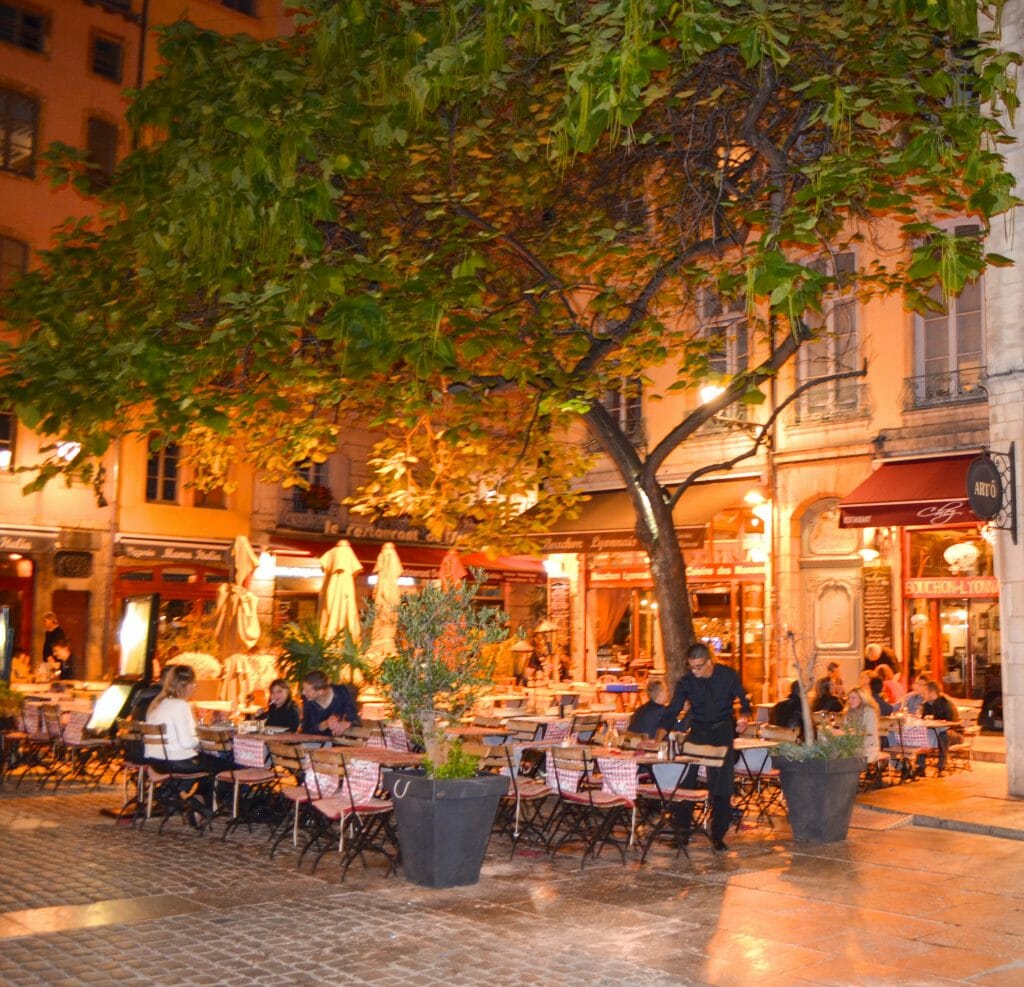
The above rule works well in restaurants too. Always make eye contact and greet the Host/Hostess upon entering. Once seated, greet your server and anyone else that comes to your table. Speak softly and slowly, as some Americans tend to speak very loudly and condescendingly as if it helps the staff understand English better. It is rude to the server and, in the process, disturbs other guests and the staff.
Interestingly this tends to be an American thing, and it is often quite embarrassing to watch. I have sometimes felt the need to apologize as if somehow I am accountable as an American. Most Americans are great, but when they are not, it draws everyone’s attention.
Tip #3 Dining out in France
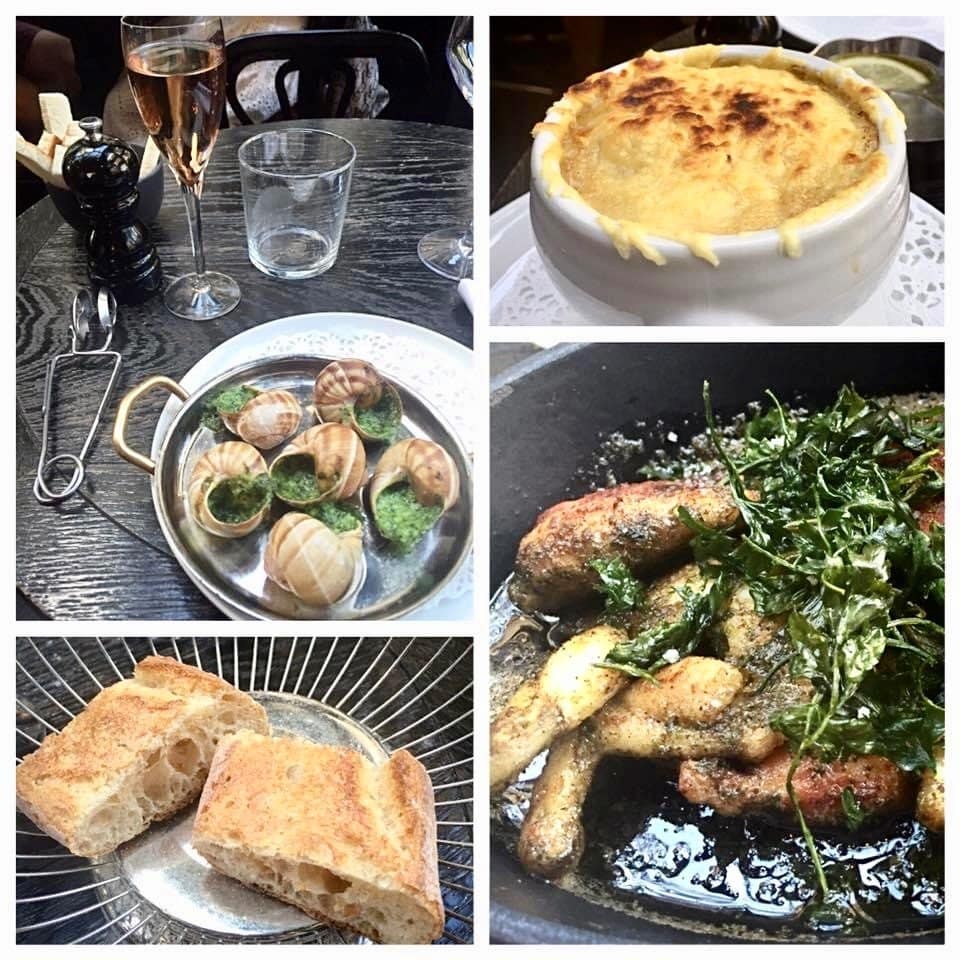
The French center their lives around food and drink. These meals should be slow and relaxing. The average meal lasts hours. Here are a few suggestions when eating out.
* Menus in nontouristy restaurants will not arrive immediately. It is rude culturally to rush you. You are given the time to settle, relax, and get acquainted. They will offer you an aperitif first. When the menu comes, you may wait a while for the server to take your order. They don’t want you to feel rushed. Also, as long as the menu is open, they will not come as it signals you are still deciding what to get. Again keep in mind the atmosphere is meant to be slow. If you are in a hurry for any reason, like to catch a train, explain that to the server immediately. Their first instinct is to give you space.
* Meals, once ordered, come with long breaks between courses. Most French cuisine is made fresh and to be served hot. It is rarely a rushed process.
* If you wait for the check to be delivered at the end of the meal, you are in for a very long wait. It is considered insulting to the guest to bring it without them asking. By far the rule for most of Europe. This is your table usually for as long as you want it. When you are ready, say “L’ addition S’il vous plait” followed by “Merci” once they acknowledge it.
These will be odd for many
* In a traditional restaurant, you rarely see salt and pepper on the table. The Chef has prepared this to their exact specifications, and seasoning is part of that. To add or alter it is seen as saying the Chef did not do their job. In reality, I rarely have felt any was needed.
* You will NEVER see butter on a traditional French table. The French do not put butter on their bread during meals, ever. It is best not to ask for it as it may not even be available as a condiment.
* As a norm, there is not a plate on the table designated for the bread. It is usually placed right on the tablecloth. It will be delivered in a basket of some type, but once you choose your piece, it goes on the table.
* One last thought, it is frowned upon to ask for a doggie bag; it is considered disrespectful. The servings are rarely large and are prepared fresh at their peak. The Chef may take personal afront as much effort was made to present a freshly prepared meal for you. It will be less enjoyed as a leftover and may take away from the experience. You can ask, but this would not be typical for the French to do so.
Tip #4 Learn the basic phrases

The majority of French people speak excellent English, except for older populations. It is respectful to know some essential words and greetings, even if you butcher it. By making an effort, you will find they are much freer with their English.
You don’t need to learn much. You should know the basic ones; the more, the better.
Bonjour Good day
Salut Hello
Bonsoir Good evening
Au revoir Goodbye
Merci Thank you
Merci beaucoup Thank you very much
S’il vous Plait Please
Excusez-moi Excuse me
Je suis désolé : I’m sorry
Comment allez-vous? How are you?
Tres bien Very good
Je ne parle pas francais I don’t speak french
Oui Yes
Non No
L’addition s’il Vous Plait Check Please
De rein A casual “Your Welcome”
Où sont les toilettes? Where are the toilets?
Combien ça coûte? : How much is this?
Want to learn how to pronounce the words and phrases above? Go to Google Translate , enter the word or phrase, and then hit the speaker icon at the base of the block.
Tip #5 DO NOT touch the produce
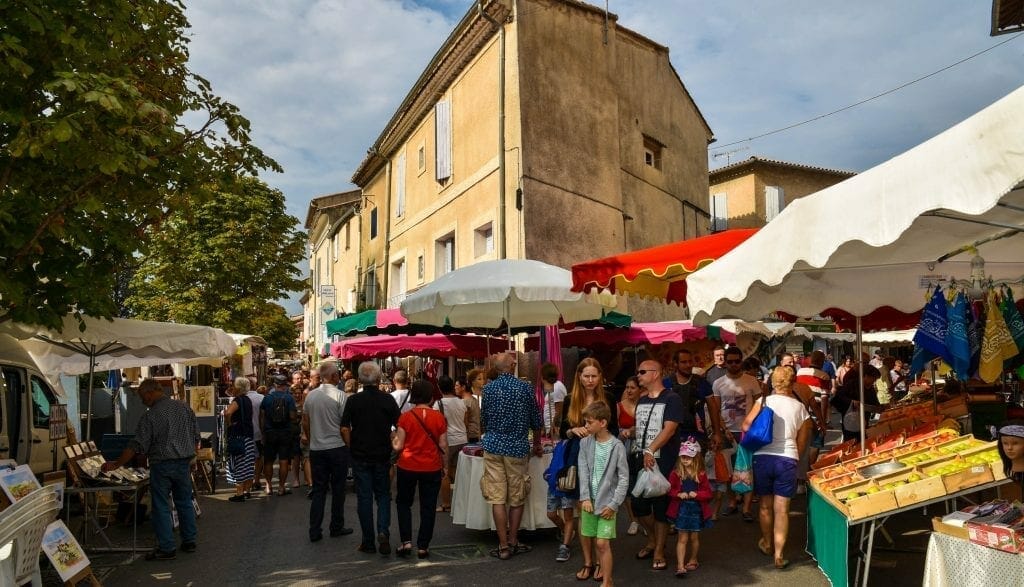
There are markets all over France, but the ones in Provence and Paris are some of the world’s best. It is a sight for the eyes. You might be tempted to touch the produce but DO NOT . That is the vendor’s job. You can leave it up to them or point but don’t touch yourself.
This is a good rule for shops as well. At times, touching merchandise gets you snapped at or brings you nasty looks. The saying “Keep your hands off the merchandise” is a cardinal rule in France.
Wonder how we can afford our travel? We use points from our travel credit cards to pay for all our hotel stays. Learn more by checking out our post on what are the Best Travel Credit Cards .
Tip #6 Shop hours are about work-life balance
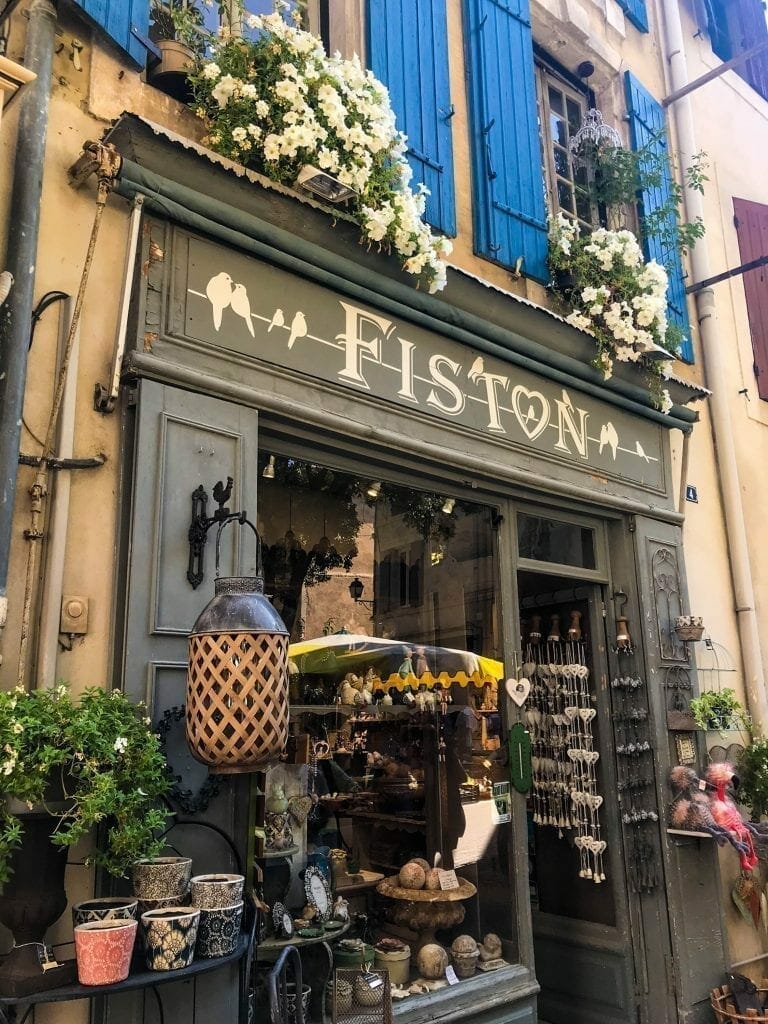
Most shops and services are not open overnight or on Sundays. Life and work balance is taken seriously in France. Many shops still close for a long lunch from 12-2:00 pm. I have seen tourists become irritated at the shopkeepers due to this. This is how they chose to run their business, and if it bothers you, then find another open shop. Touristy areas tend to be open for longer hours.
In the summer, especially in August, many restaurants and shops close for weeks at a time for an extended vacation. Many small restaurants and shops are family-owned and run with little staff. When the owners are away, no one is left to “hold down the fort.”
The lesson here is to check hours and don’t count on anything being open into the evening, especially in small towns but even in cities like Paris.
Tip #7 When invited to someone’s home
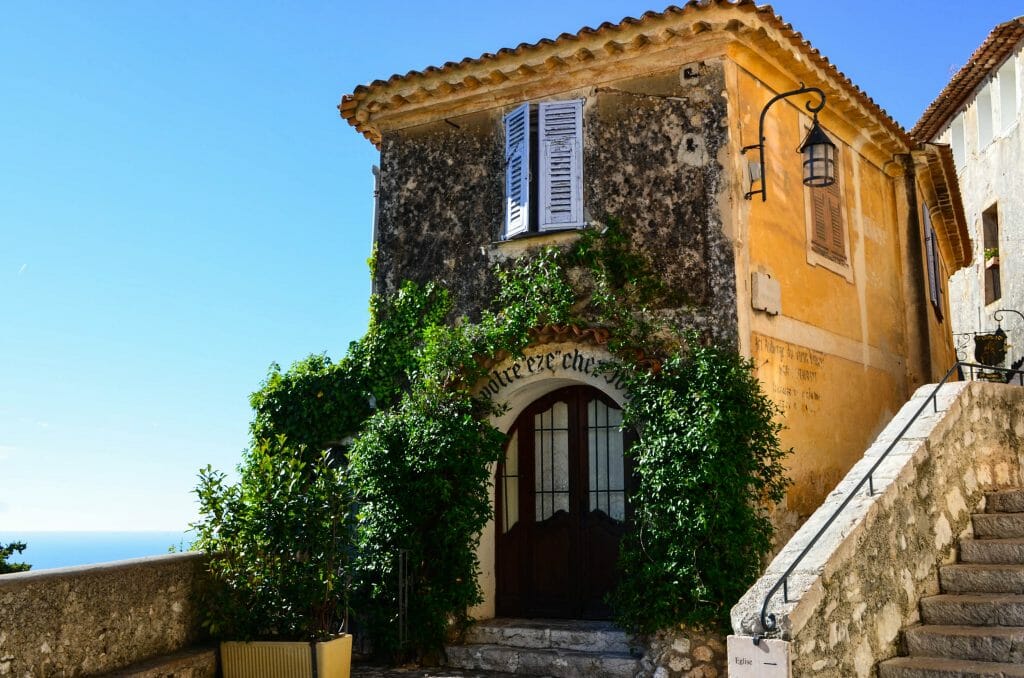
If you are lucky enough to be invited to a home in France, you must always come bearing a gift. Please DO NOT make it wine. Your host pairs the wine based on the menu. To suggest you could know better than they do for a meal they planned is not well received even though it was not your intent. Bring flowers, a box of Macaroons, Chocolate or Champagne. Those are always well received.
Tip #8 The French love their dogs
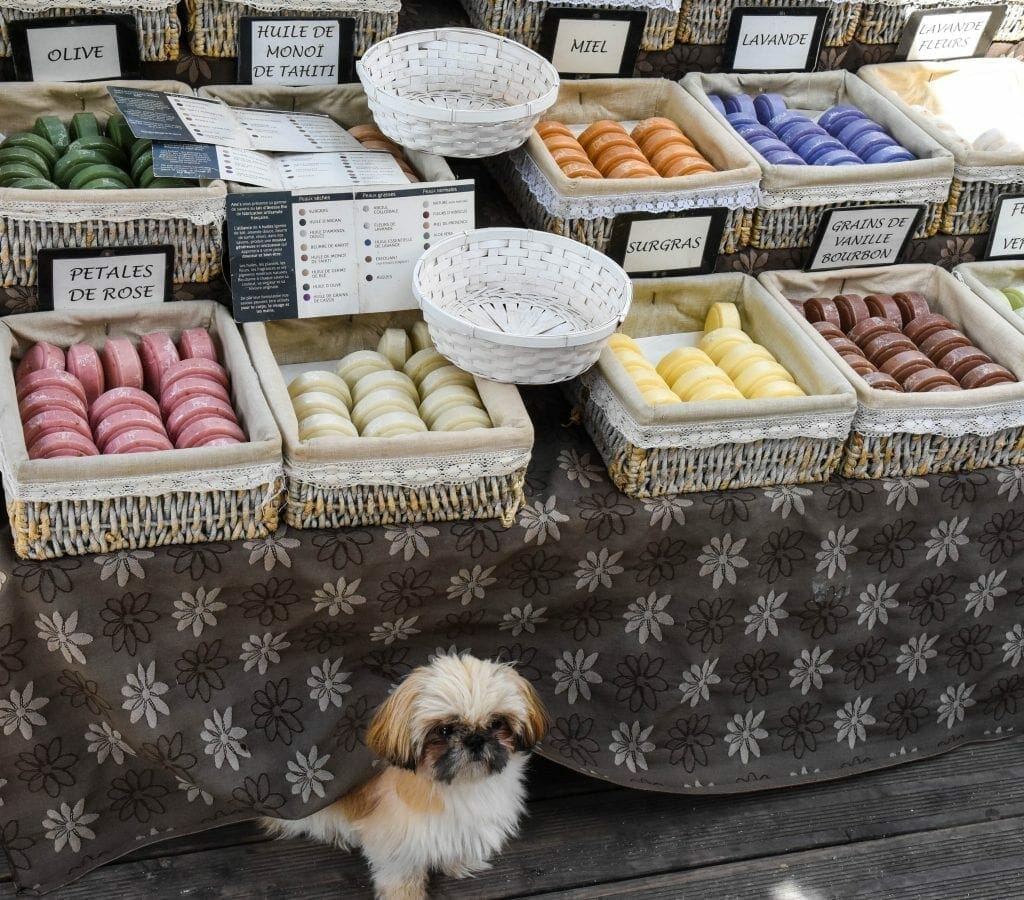
The French are dog people, and their canine pets are everywhere. As a result, so is their doggy do-do, even in the streets of Paris. Though there are attempts to have owners pick up after their dogs, it is not as hoped. It doesn’t bother them, and they are out walking several times a day.
Their love for their pups also means they don’t take well to disapproval. Do not make faces or try to tell them to remove the doggy do, or you will get some very nasty looks. The French love their pets, and nobody messes with that. So watch your step with both your feet, words, and facial expressions!
In France, as in many European places, you may find dogs in the most unusual places. We had dinner at several upscale restaurants on a visit to Colmar, France. It wasn’t until the middle of our meal that we realized we had two tables near us, each with a dog. The dogs were given water bowls and something to lay on. They were very well-behaved and quiet. One was a small guy, but the other was a medium-sized dog. We have come across this often in our travels all over Europe. Once on the Brittany Coast of France, in a prestigious restaurant, most tables had dogs. This is cultural and accepted. We have found it charming, and as guests in their world, it is not our place to comment or judge.
If you wish to make a French locals’ day and find their dog exceptionally cute, you can say “Vous avez un chien mignon,” which means you have a cute dog. That will bring a smile to almost any French person’s face!
Tip #9 Keep those hands visible
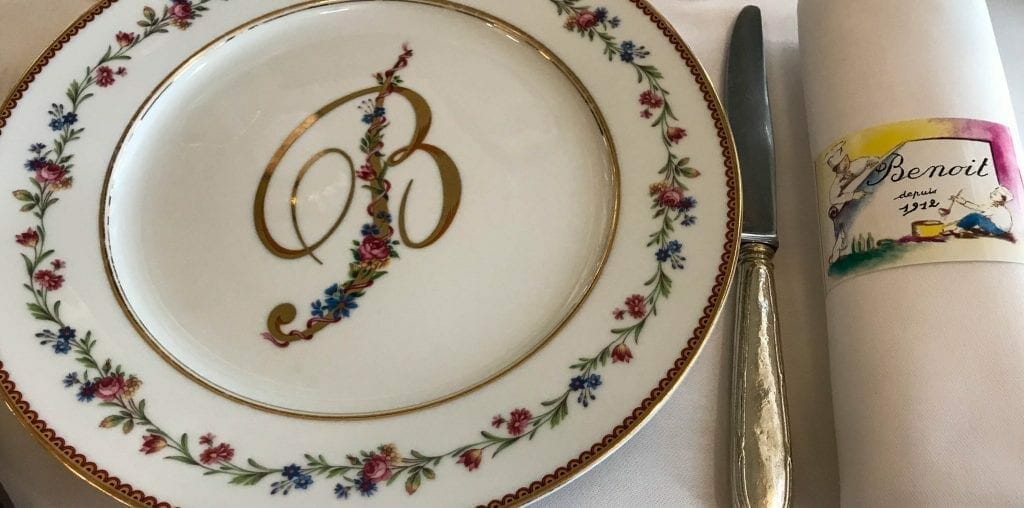
Keeping your hands in your lap during a meal is not considered polite. Hands should be visible with both hands on the table. This is standard in most of Europe.
There is a good historical reason for this. In the XVII Century, Louis XIV became aware of a conspiracy to poison him with arsenic. Concerned that one of his guests at the dining table would try to kill him, he ordered that everyone keep their hands visible and place them on the table throughout all meals. As people often followed the aristocracy, the rest of the country soon followed suit.
Did it work for the other half of the Team?
Ryan’s first visit to France had him wondering if I may be biased about how I saw the French people. After years of hearing the opposite about the French, I was anxious to see his experience. As with everyone accompanying me to France, I shared the 9 Things to Know about French Culture Before You Visit, but it needed to be implemented to see how it worked.
I would step back often and let him lead the interactions and conversations. It was, across the board, in many different regions of France, always a positive experience. He found everyone he interacted with charming and gracious.
Final thoughts

The goal of the 9 Things to Know about French Culture Before You Visit is to give you easy tools to make your visit to France smooth and welcoming. It is a remarkable country that never ceases to amaze me. The people I have met during my travels to France over all these years are some of my favorite interactions. There is warmth and welcome from the French people that will charm you if you do the simplest of actions.
You will experience the same by following some of the practical tips above. Take the time to learn the essential words in the French language; it will serve you well. Knowing the etiquette and local customs will ensure a successful trip and memories that will last a lifetime.
Bon Voyage!
Planning a trip to France?
It is important to price out accommodations on various sites. Expedia is a US-based company, whereas Booking.com is Europe-based. Not all properties appear on both, so it is ideal to check both out. Our personal first choice is Booking.com . If the establishment has a website, check the price there as well. Click the link below to check out hotels and vacation homes in the area. It may be just the motivation you need to start planning that next grand adventure.
Did you enjoy 9 Things to Know about French Culture Before You Visit? Then check out our France Travel Guide
France Photo Gallery






































For a great resource, check out the Official
France Tourism Site
Our Top Recommended Travel Products and Services
Travel Insurance
Squaremouth.com
Our favorite travel insurance site!
We could not be stronger advocates of being well-insured—not just for the little stuff but for the big things like medical emergencies. We never leave home without it. Our go-to place is Squaremouth.com . It does a fantastic job with its user-friendly interface and uses top-rated and reputable insurance carriers. They also mediate on your behalf if you have problems.
To empower you as a consumer, we suggest you read our blog post on the importance of travel insurance and how to get the best coverage from top-rated companies for an affordable price.
MedjetAssist
Medical transport back home from anywhere in the world
They are the premier global air medical transport. One caveat to travel insurance is that medical evacuation usually gets you to the closest facility to care for you. Medjet gets you back to the U.S. to the hospital of your choice once you are stable enough to fly. A Medjet membership is only for medical transport. Medjet Horizon offers expanded coverage. They have individual trip policies starting at $99 and annual policies for around $300. Most of their policies limit the age to 74.
To learn more about how Medical Evacuation membership with Medjet Assist works, check out our blog post for a more detailed review.
Accommodations and Airfare
Expedia
and
VRBO
Hotels, home rentals, BNBs, flights, and other transportation & tours
Expedia is a US-based company whose mission is to power global travel for everyone and everywhere. focuses on independent travel, and using sites like Expedia makes that possible. Every aspect of travel you need, from airfare, accommodations, rental car, and cruises to activities to do at your destination, can be booked on Expedia .
Booking.com
Hotels, Home rentals, BNBs, Flights, and other Transportation & Tours
Booking.com connects millions of travelers to memorable experiences, various transportation options, and incredible places to stay – from homes to hotels and much more. It is one of the world’s largest travel marketplaces for established brands and entrepreneurs of all sizes. It is our preferred booking site.
Transportatio n
Daytrip
Personalized city-to-city private car transfer service
Daytrip is an affordable private car service for city-to-city transfers around the world. We love their service, and it costs much less than renting a car. You can enjoy comfortable, stress-free travel with the added bonus of scenic sightseeing stops along your journey. For example, we used them between Budapest and Vienna, making some fantastic stops along the way. Their professional drivers and customizable routes ensure a smooth ride while allowing you to explore hidden gems and local attractions.
To learn more about how Daytrip, check out our blog post for a more detailed review.
Travel Experiences
Viator
The leading marketplace for travel experiences
Viator believes that making memories is what travel is all about. And with 300,000+ experiences to explore—everything from simple tours to extreme adventures (and all the niche, interesting stuff in between)—making memories that will last a lifetime has never been easier. We use them often during our travels and love their liberal cancellation policy.
Communication products for seamless connectivity overseas
GigSky International eSIM Data Plans
Local Prices. No Roaming. Fastest Networks.
GigSky eSIM keeps travelers seamlessly connected worldwide without the hassle of swapping physical SIM cards or facing unexpected roaming charges. With affordable data plans and instant activation, you can enjoy reliable internet access in over 190 countries, making travel more convenient than ever. They have a great offer, a 100 MB data plan for free, and no credit card is required. They are that confident you will love their product!
Enjoy 10% off all GigSky Plans (except cruise and inflight) with our discount code WCOMPASS10
To learn more about how GigSky, check out our blog post for a more detailed review.
Shopping
Amazon Storefront
An excellent source for all travel essentials and guides that we have vetted ourselves
Amazon is one of the most comprehensive online shopping sources in the world. Teams worldwide provide lower prices, better selection, and rapid delivery on behalf of customers. They offer a vast inventory, and their 1.7 million small and medium businesses worldwide selling on Amazon.com offer extensive options to customers.
This article contains affiliate links. If you use these links to buy something, we may earn a small commission at no additional cost to you. Thank you!
Love French Crepes? Checkout out an old family recipe here
Check out our most recent blog posts
Tokyo Unleashed: Delighting in the Fun Side of Japan’s Capital
Discover the vibrant and fun-loving spirit of Tokyo through thrilling experiences like sumo wrestling,…
November 19, 2024Cinque Terre: A Journey through Italy’s Five Charming Villages
Discover the beauty of Cinque Terre with our ultimate guide to the five charming…
November 17, 2024Exploring Trim Castle: History, Architecture, and Visitor Guide
Along the river Boyne in the quaint village of Trim sits the mighty Trim…
November 13, 2024Level8 Luggage Review: A New Standard in Travel Gear
In this review of Level8 luggage, we found that its sleek design, durable construction,…
November 12, 2024Why Milk is the Perfect Hydration Boost for Plane Travel
Milk isn’t just for breakfast; it’s also a great choice for hydration and energy…
November 12, 2024Iceland’s Surprising Natural Wonders: Beyond the Famous Tourist Attractions
Iceland’s Surprising Natural Wonders: Beyond the Famous Tourist Attractions
November 12, 2024Imperial Hotel Tokyo: A Fusion of Timeless Elegance, Unparalleled Luxury and Historic Legacy
The Imperial Hotel Tokyo, an iconic establishment opened in 1890, blends traditional Japanese aesthetics…
November 4, 2024Europe Wine Wonders: The Most Unexpected Places to Sip and Savor
Discovering Europe’s lesser-known wine regions unveils a world of unique flavors and rich traditions…
October 31, 2024Embracing Morocco’s Customs and Traditions: A Guide for Visitors
Discover the essential customs and traditions of Morocco that every traveler should know. From…
October 27, 2024










